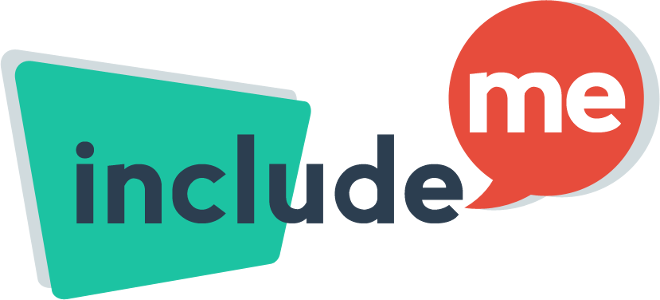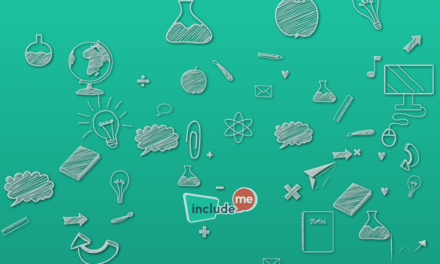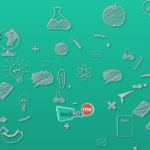“There is no end to education. It is not that you read a book, pass an examination, and finish with education. The whole of life, from the moment you are born to the moment you die, is a process of learning.” – Jiddu Krishnamurti
Learning to learn is seen as ability to pursue and persist in learning, to organize one’s own learning with effective management of time and information. It includes identifying opportunities and overcoming obstacles in order to learn successfully. Learning to learn engages learners to build on prior learning and life experiences in order to use and apply knowledge and skills in a variety of contexts: at home, at work, in education and training.
Learning styles
Length of the session

LEARNING OBJECTIVES
- Identify different learning styles of the participants
- Define the importance of the awareness about different learning styles in the job finding process
Materials Needed
Printed copies of the LSQ
(ANNEX 3.) for each participant
Learning styles questionnaire and analyses
duration of activity
Ask the participants to fill in the questionnaire and and find their scores. Help them if needed to calculate the results and determine their learning styles.
Discussion
duration of activity
Learning styles and preferences vary for each of us and in different situations. By understanding this, and developing the skills that help you learn in a variety of ways, you make the most of your learning potential. And because you’re better able to learn and gather information, you’ll make better decisions and choose better courses of action. And by understanding that other people can have quite different learning preferences, you can learn to communicate your message effectively in a way that many more people can understand.
This is fundamentally important, particularly if you’re a professional for whom communication is an important part of your job.
Take time to identify how you prefer to learn and then force yourself to break out of your comfort zone. Once you start learning in new ways you’ll be amazed at how much more you catch and how much easier it is to assimilate information and make sense of what is going on.
Ask the participants
to discuss a bit about their learning styles and preferences.
LEARNING STYLE QUESTIONNAIRE
(Based on Honey and Mumford)
The questionnaire is designed to find out your preferred learning style(s). Over the years you have probably developed learning habits that help you benefit more from some experiences than from others. Since you are probably unaware of this, this questionnaire will help you identify your learning preferences so that you are in a better position to select learning experiences, which suit your style. The accuracy of the results depends on how honest you can be. There are no right or wrong answers.
If you agree more than you disagree with a statement put a tick next to it (√). If you disagree more than you agree put a cross next to it (X).
Be sure to mark each item with either a tick or a cross.
LEARNING STYLE QUESTIONNAIRE
- I have strong beliefs about what is right and wrong, good and bad.
- I often do things impulsively, without worrying too much about what will happen.
- I tend to solve problems using a step-by-step approach, and avoid spontaneous “distractions”.
- I believe that formal procedures and policies limit people’s style.
- I have a reputation for having a no-nonsense, straightforward style.
- I often find that actions based on instinct are as sound as those based on careful thought and analysis.
- I like to do the sort of work where I have the time to check everything thoroughly.
- I regularly question people about their basic assumptions.
- What matters most is whether something works in practice.
- I actively look for new experiences.
- When I hear about a new idea or approach I immediately start working out how to apply it in practice.
- I am keen on self-discipline such as watching what I eat, taking regular exercise, keeping to a fixed routine, etc.
- I take pride in doing a thorough, complete job.
- I get on best with logical, analytical people and less well with spontaneous, “irrational” people.
- I take care over the interpretation of data available to me and avoid jumping to conclusions.
- I like to reach a decision carefully after weighing up many alternatives.
- I am attracted more to new, unusual ideas than to practical ones.
- I prefer to fit things into a coherent, logical pattern.
- I accept and keep to established procedures and policies so long as I regard them as an efficient way of getting the job done.
- I like to relate my actions to a general principle.
- In discussions I like to get straight to the point.
- I tend to have distant, rather formal relationships with people at work.
- I enjoy the challenge of working on something new and different.
- I enjoy fun-loving, spontaneous people.
- I pay careful attention to detail before coming to a conclusion.
- I find it difficult to come up with wild, off-the-top-of-the-head ideas.
- I do not believe in wasting time by talking around the subject.
- I am careful not to jump to conclusions too quickly.
- I prefer to have as many sources of information as possible – the more data to reflect on the better.
- Jokey people who do not take things seriously enough usually irritate me.
- I listen to each person’s point of view before putting my own forward.
- I tend to be open about how I am feeling.
- In discussions I enjoy watching how the other participants position themselves.
- I prefer to respond to events on a spontaneous, flexible basis rather than plan things out in advance.
- I tend to be attracted to techniques such as network analysis, flow charts, branching programs, contingency planning, etc.
- It worries me if I have to rush out a piece of work to meet a tight deadline.
- I tend to judge people’s ideas on their practical merits.
- Quiet, thoughtful people tend to make me feel uneasy.
- People who want to rush quickly into things often irritate me.
- It is more important to enjoy the present moment than to think about the past or future.
- I think that decisions based on a thorough analysis of all the information are sounder than those based on intuition.
- I tend to be a perfectionist.
- In discussions I usually contribute with lots of spontaneous ideas.
- In meetings I put forward practical realistic ideas.
- More often than not, rules are there to be broken.
- I prefer to stand back from a situation and consider all the perspectives.
- I can often see inconsistencies and weaknesses in other people’s arguments.
- On balance I talk more than I listen.
- I can often see better, more practical ways to get things done.
- I think written reports should be short, and to the point.
- I believe that rational, logical thinking should win the day.
- I tend to discuss specific things with people rather than engaging in “small talk”.
- I like people who have both feet firmly on the ground.
- In discussions I get impatient with irrelevancies and distractions.
- If I have a report to write I tend to produce lots of drafts before settling on the final version.
- I want to try things out to see if they work in practice.
- I want to reach answers via a logical approach.
- I enjoy being the one that talks a lot.
- In discussions I often find I am realist, keeping people to the point and avoiding ungrounded speculations.
- I like to think about many alternatives before making up my mind.
- In discussions with people I often find I am the most dispassionate and objective.
- In discussions I am more likely to keep a “low profile” than to take the lead and do most of the talking.
- I like to be able to relate current actions to a longer-term bigger picture.
- When things go wrong I am happy to move on and “put it down to experience”.
- I tend to reject wild, off-the-top-of-the-head ideas as being impractical.
- It is best to “look before you leap”.
- On balance I do the listening rather than the talking.
- I tend to be tough on people who find it difficult to adopt a logical approach.
- Most times I believe the end justifies the means.
- I do not mind hurting people’s feelings so long as the job gets done.
- I find the formality of having specific objectives and plans suffocating and restricting.
- I am usually the “life and soul” of the party.
- I do whatever is needed to get the job done.
- I quickly get bored with methodical, detailed work.
- I am keen on exploring the basic assumptions, principles and theories underlying things and events.
- I am always interested to find out what other people think.
- I like meetings to be run on methodical lines, keeping to laid down agenda, etc.
- I avoid subjective or ambiguous topics.
- I enjoy the drama and excitement of a crisis situation.
- People often find me insensitive to their feelings.
The four learning styles: activist, reflector, theorist and pragmatist are linked to the four stages of learning.

Activists
learn best from experiences where:
There are new experiences, problems, and opportunities from which to learn.
They can engross themselves in short “here and now” activities such as business games, competitive tasks, and role-playing exercises.
They have a lot of the limelight, high visibility.
They are thrown in at the deep end with a task they think is difficult.

Theorists
learn best from experiences where:
They have time to explore methodically the associations and interrelationships between ideas, events and situations.
They are in structured situations with clear purposes.
They have the chance to question and probe the basic methodology, assumptions or logic behind something.
They are intellectually stretched.

Reflectors
learn best from experiences where:
They are encouraged to watch, think, and chew over activities.
They are allowed to think before acting, to assimilate before commenting.
They have the opportunity to review what has happened, what they have learned.
They can reach a decision in their own time without pressure and tight deadlines.

Pragmatists
learn best from experiences where:
There is an obvious link between the subject matter and a problem or opportunity on the job.
They are shown techniques for doing things with obvious practical advantages currently applicable to their own job.
They have the chance to try out and practice techniques with coaching, feedback from a credible expert.
They can concentrate on practical issues.
Learning Styles: Strengths and Weaknesses
Activist – strengths
Flexible and open minded
Happy to have a go
Happy to be exposed to new situations
Optimistic about anything new and therefore unlikely to resist change
Reflector – strengths
Careful
Thorough and methodical
Thoughtful
Good at listening to others and assimilating information
Rarely jump to conclusions
Reflector – strengths
Careful
Thorough and methodical
Thoughtful
Good at listening to others and assimilating information
Rarely jump to conclusions
Pragmatist – strengths
Keen to test things out in practice
Practical, down to earth, realistic
Businesslike – get straight to the point
Technique oriented
Activist – waknesses
Tendency to take the immediately obvious action without thinking
Often take unnecessary risks
Tendency to do too much themselves and hog the limelight
Rush into action without sufficient preparation
Get bored with implementation/consolidation
Reflector – weaknesses
Tendency to hold back from direct participation
Slow to make up their minds and reach a decision
Tendency to be too cautious and not take enough risks
Not assertive – they are not particularly forthcoming and have no “small talk”
Theorist – weaknesses
Restricted in lateral thinking
Low tolerance foe uncertainty, disorder and ambiguity
Intolerant of anything subjective or intuitive
Full of “should, ought and must”
Pragmatist – weaknesses
Tendency to reject anything without an obvious application
Not very interested in theory or basic principles
Tendency to seize on the first expedient solution to a problem
Impatient with waffle
On balance, task oriented not people oriented














Recent tips